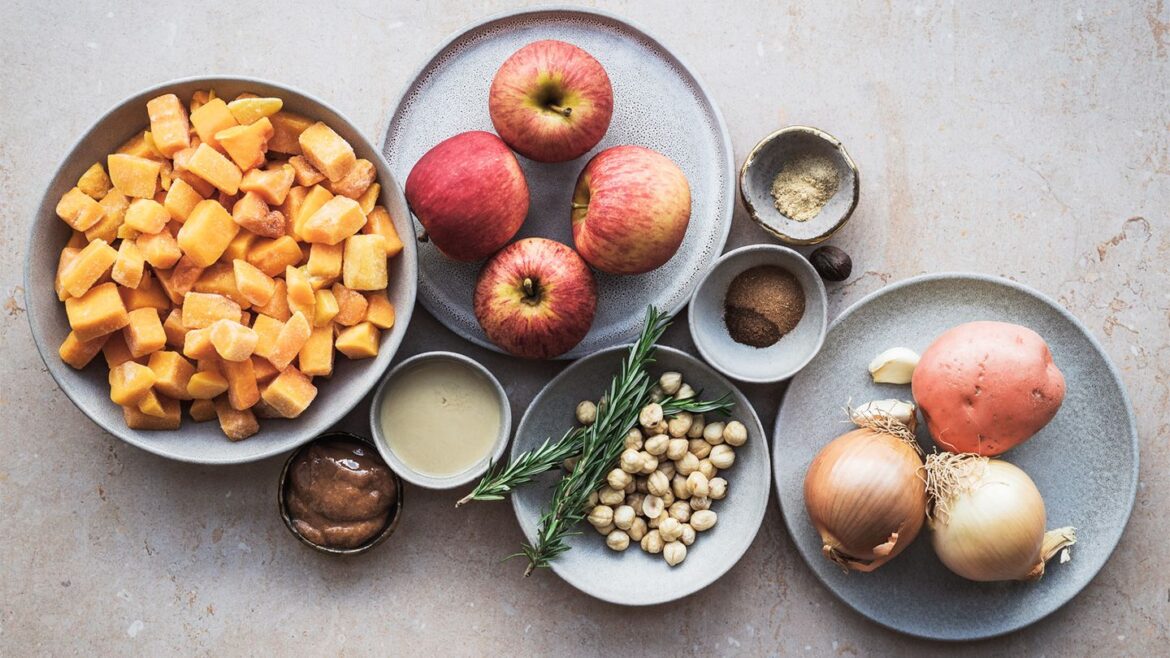People with ulcerative colitis (UC) often have multiple bouts of loose bowel movements during a flare-up. When this happens, there are changes you can make to your diet to avoid aggravating your GI symptoms. “Generally, when a UC patient is going through a flare-up, it’s recommended they eat nutrient dense, natural foods that are easy to digest,” says Cristiana Assumpção Mengarelli, RDN, a clinical dietitian in the division of gastroenterology at the University of Miami Health System in Florida.
When it comes to produce, you may find cooked fruit and veggies to be easier to tolerate. “The use of heat on fruits and vegetables aids in the breakdown of fiber that otherwise would not have been easily digested,” explains Holly Smidt, RD, a clinical dietitian at the Center for Endocrinology at Mercy in Baltimore. This holds true whether you bake, roast, or boil your produce.
Another trick is to peel your fruit and veggies — such as apples, pears, cucumbers, and potatoes — because the skins are particularly high in fiber. “Peeling vegetables eliminates some of the insoluble fiber which is what contributes to irritation in the gut during a flare,” Smidt says.
You can also try pureeing fruits and vegetables into soups and smoothies. This is a good strategy to reintroduce produce you may have eliminated during flare-ups. “Once an individual has their UC under control, reintegrating fruits and vegetables into their diet can cause anxiety for some as they may have aggravated GI symptoms when there was active inflammation,” says Luis Garcés, RD, a clinical dietitian in the division of gastroenterology at the University of Miami Health System. “This approach is typically better tolerated and is a great first step in getting back to a healthy diet.”
Know Your Trigger Foods
“Cruciferous vegetables and other high fiber fruits and veggies can be trigger foods for someone with UC,” says Smidt. “Foods to avoid would include raw vegetables, broccoli, cabbage, Brussels sprouts, cauliflower, peas, beans, and salads.” Instead, Mengarelli recommends ripe bananas, avocado, cantaloupe, nectarines, papayas, peaches, honeydew melon, plums, and canned fruits in 100 percent fruit juice. Well-cooked veggies, such as carrots, potatoes without skin, pureed spinach, beets, and squash without seeds, are also good options, she adds.
Keep in mind, however, that foods can affect people differently. Fruits and vegetables mentioned here are only suggestions, and you’ll need to determine your personal triggers through trial and error. “In general, people in remission with UC or with mild disease should try all fruits and vegetables to determine which ones they may be sensitive to and need to be removed from their diet,” Mengarelli says.
Keeping a food journal and working with a registered dietitian can help you detect patterns and identify troublesome foods.
Are you ready to put this knowledge to use? Here are five veggie-centric recipes to try, as well as notes on how you may want to modify them during a flare. Omit any known food triggers, of course, and adjust the recipes to fit your needs.

